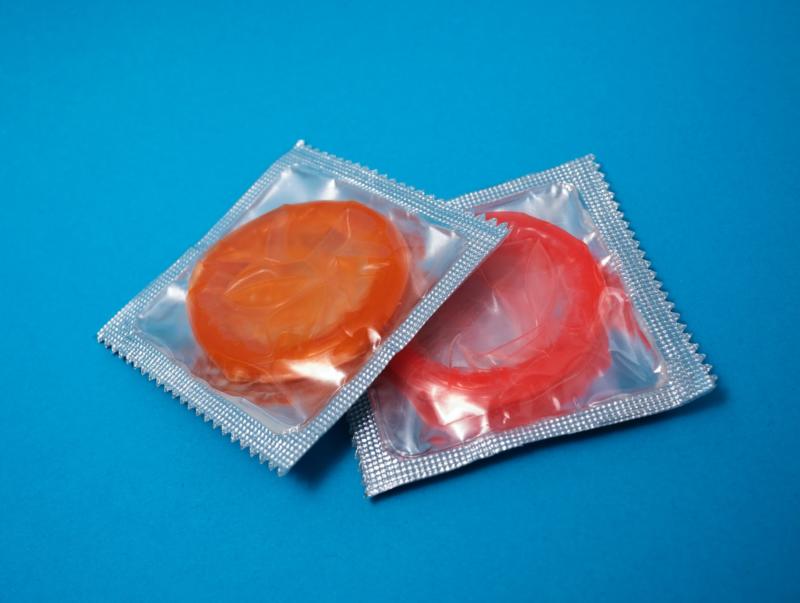While it’s unlikely that it will happen, if you are using safer sex barriers, there’s a chance they can break, and if it happens it can be straight-up stressful. The tension increases especially if you’re unsure of your partner’s STI status, or if there’s a chance of unwanted pregnancy. First things first: stay calm. Once it’s happened, it’s time to collect yourself and act quickly. While this can be quite an emotional challenge, there are steps that can be taken to minimize the risk. Take a deep breath, and let’s get started!
Here’s your checklist for making sure you do everything you can to ensure your health and safety.
1. Go pee, but don’t wash out your vagina
While using the toilet isn’t going to prevent pregnancy or infections like chlamydia or gonorrhea, it can help prevent urinary tract infections and bladder infections. And although it may seem like a good idea to try douching, even just with water, it’s possible that doing so can actually encourage yeast growth, bacterial vaginosis, and other imbalances, so, as always, douching is not recommended.
2. Check with your partner to find out the last time they were tested, if you haven’t already
Ideally, this conversation comes before sex ever occurs. If they’ve been tested recently, you can at least put your mind at ease until you go get tested yourself, as it’s still necessary to check on your STI status again after a condom breaks! See item 5.
3. If applicable, check out your ovulation
While eggs can only be fertilized within a very short window each month, it is possible to become pregnant at any point during your cycle. If you’re a person for whom pregnancy could occur, you’ll want to figure out the likelihood of conception and plan accordingly. At the very least, being familiar with your cycle can help put your mind at ease. Fertility trackers are excellent tools for staying up-to-date with your body. (This sex educator suggests Life, a free, totally customizable and non-gendered app!)
4. Avoiding pregnancy? Go grab some Plan B
Also known as emergency contraception, it’s often available over the counter at your local pharmacy—call and ask if they provide it without prescription, and if not, where they might recommend you go. It can also be obtained online (even through Amazon!), so no matter where you are, you’re able to get emergency contraception in a flash. It’s up to 95% effective when taken as directed.
5. Get tested
The type of testing you need may vary depending on your situation. If your partner is HIV+, you’ll want to go to the emergency room and provide your doctor with all the details. They will determine whether or not you should begin a course of medication to prevent infection, and they can also administer a rapid HIV test. If you and your partner are unsure of your HIV status, you should both be tested and ask your doctor for the best way to move forward.
For all other testing, you can schedule a visit with a doctor by letting them know the reason for your appointment. They’ll determine the best time for you to come in and can answer any questions you may have about your situation. Some tests can show a false negative if taken too early, so your doctor will be able to correctly determine when to administer the tests. This is why it’s so important to re-test after breakage occurs!
If you do end up with an STI, many can be treated quickly and easily, and will not cause serious damage to your body if you act fast. If left untreated, however, STIs can wreak havoc on the body and cause numerous unpleasant side effects, so make sure you don’t put off testing. It’s important, and your wellness is worth it.
After all that, it’s important to have a conversation with your partner about your plan going forward. How can you prevent this from happening in the future? Some things you may want to talk about are: the kind of lubricant you were using (oil-based lube can cause barriers to break with next to no friction applied, so beware and stick to a water- or silicone-based lubricant; we love Sliquid Sassy!); how the barrier was worn; what each of you felt before the breakage occurred; and how you feel. In all areas of our sexuality, it’s important to share our thoughts and feelings with those we choose to engage with, so make sure to set aside some time to relax (it’s probably been a stressful day for you both!), snuggle up, and discuss everything that went down.
In the heat of the moment, sometimes things go haywire. It isn’t ideal, but there are always measures we can take to reduce the risks involved. Remember to be gentle with yourself! Mistakes happen, and you’re prepared to handle what comes next.
You’ve got this!

